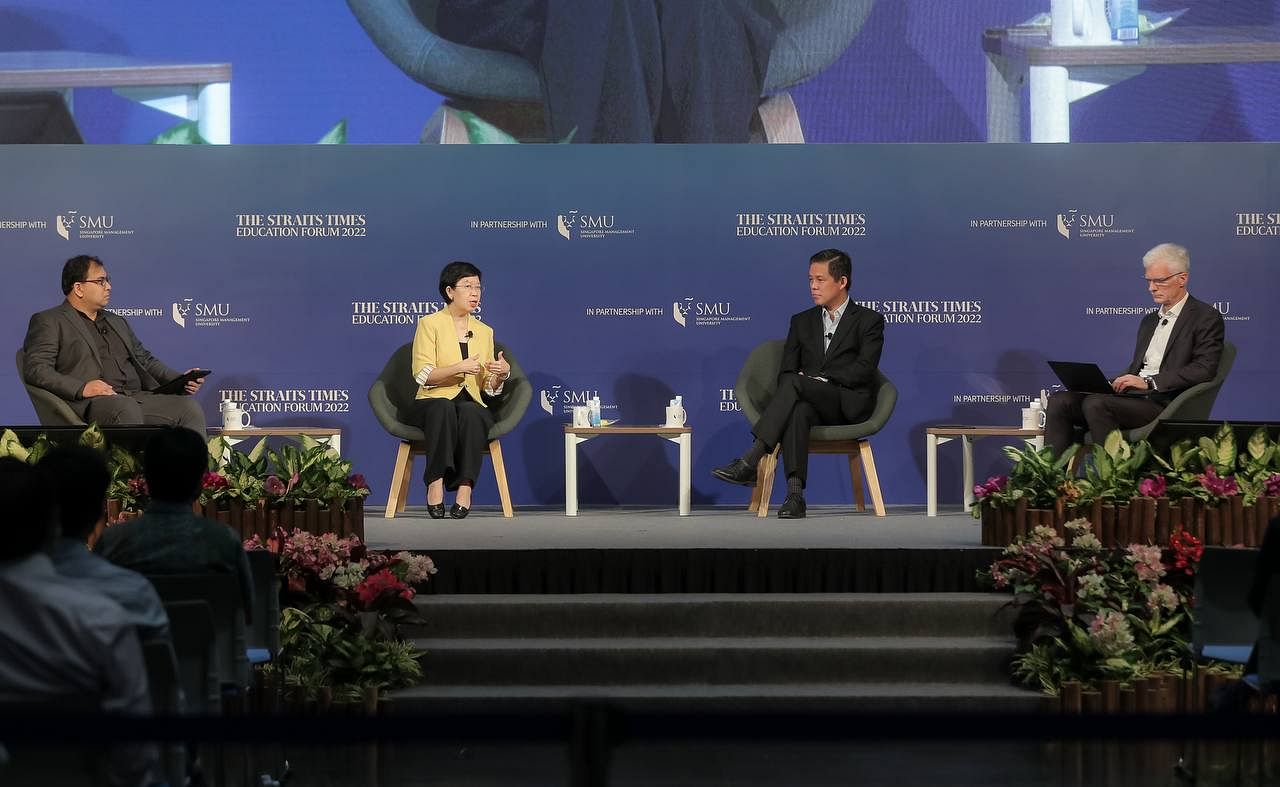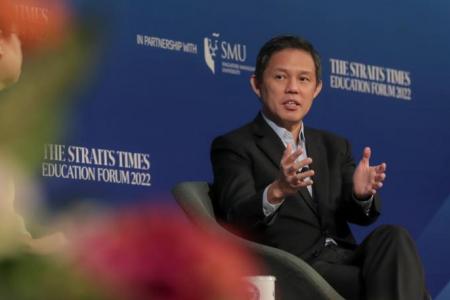Definition of success in Singapore education system must change: Chan Chun Sing
The pace of acquiring skills and new knowledge must intensify as Singaporeans face the reality of having to change jobs every five years, said Education Minister Chan Chun Sing.
He added that about 20 per cent to 25 per cent of Singapore's local workforce of about three million may need to upskill yearly - that is about half a million adult workers every year.
To do this, the definition of success for the education system must change, said Mr Chan in a keynote address at The Straits Times Education Forum 2022 on the evolving role of universities.
The forum was held in partnership with the Singapore Management University (SMU) on Thursday (Feb 10).
Mr Chan said: "The definition of success for our education system cannot be just how well we produce a cohort of 30 to 40 thousand students each year for the job market. It should be how well we do that plus retraining and upgrading about half a million adult learners each year."
Mr Chan went on to detail four points where the education system must change to achieve this new goal.
He said: "First, we need to jettison the concept that we can ever be done with learning."
No amount of education early in life can prepare Singaporeans for work, he added, and only continual learning can help them stay current for the rest of their lives.
Second, Singapore must let go of the idea that there is a pre-defined pathway to success.
He said: "Success is never static. It matters less how many of our students in a particular cohort go to universities and polytechnics or the Institute of Technical Education at a particular point in their lives.
"It matters more, much more, how many of our students can acquire the appropriate degrees, diplomas, graduate diplomas and even stackable modules and micro-credentials throughout and at relevant points in their lives, to meet their ever-evolving life cycle needs."
Mr Chan added that a "lifetime participation rate" in training and education is a more appropriate description of what the education system wants to achieve at large, rather than the current practice of measuring cohort participation rates at the various institutes of higher learning here.

Third, skills and knowledge must be constantly combined and recombined to create value in a quickly evolving market.
He said: "The skills to learn, learn fast, unlearn, and relearn, become more important than getting a particular grade at a particular point in life."
The skills to collaborate across different disciplines, cultures and perspectives to create something new is now more important than ever before, he said.
Mr Chan added that flexible modules across multiple disciplines that allow students to pivot across sectors have become even more important.
He gave the example of the Singapore Management University's plan to give some students the choice to design their own curriculum and build their own degree courses.
And fourth, Mr Chan said the education system needs to shorten the time to market for skills and knowledge.
He added that there must be faster movement from frontier research, leading industrial technology and breakthrough market practises to academia and back to the market.
He said: "This defines our competitiveness as a people and system."
To achieve this, the education system must sharpen its approach to internships, academia and industrial collaborations, as well as alumni engagement, he added.
Get The New Paper on your phone with the free TNP app. Download from the Apple App Store or Google Play Store now

